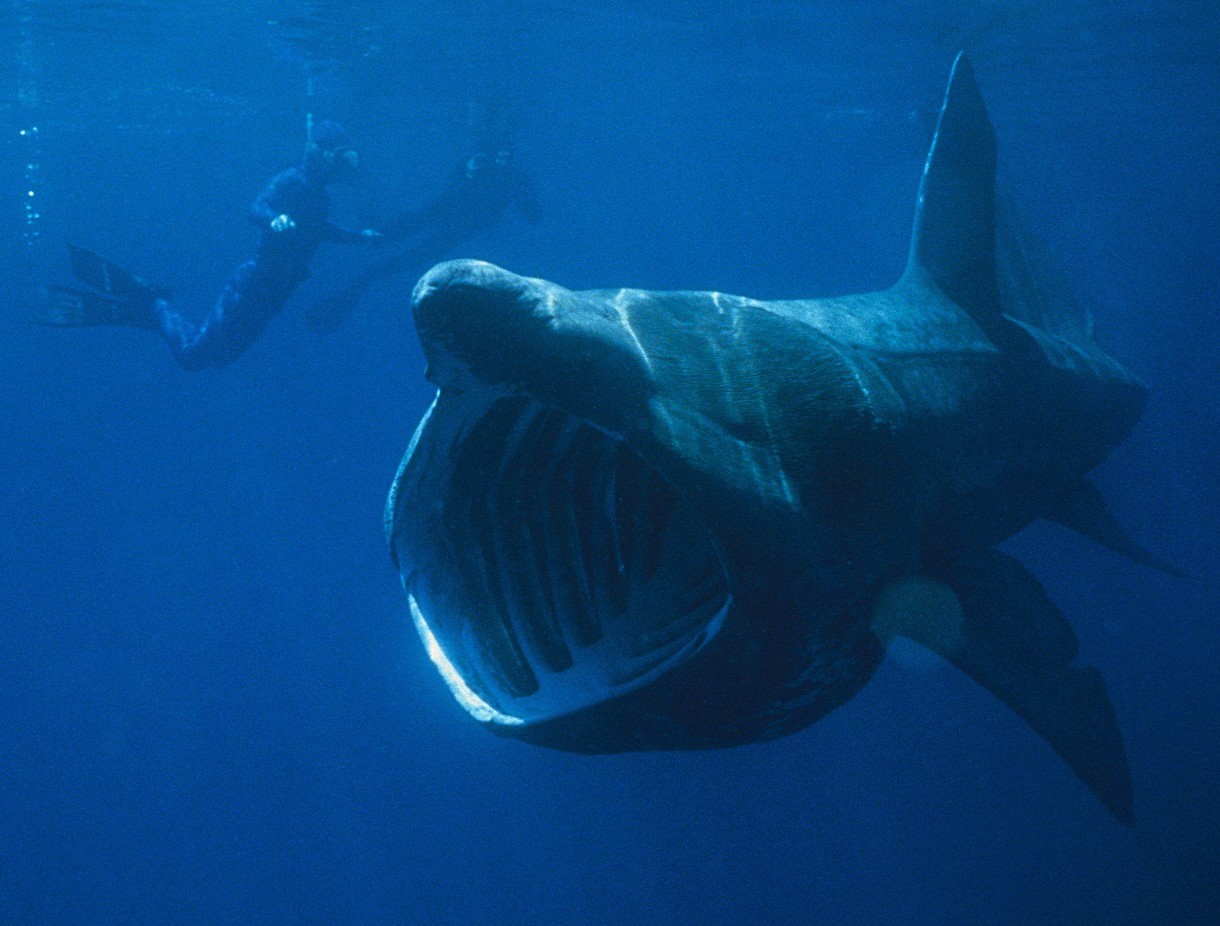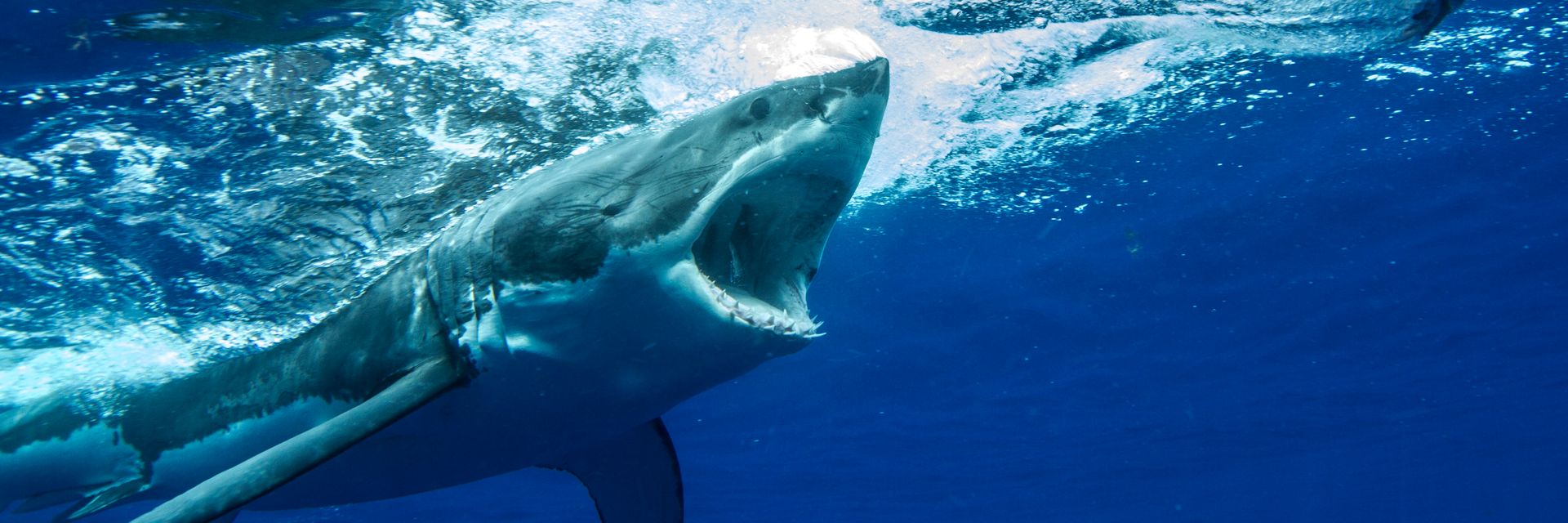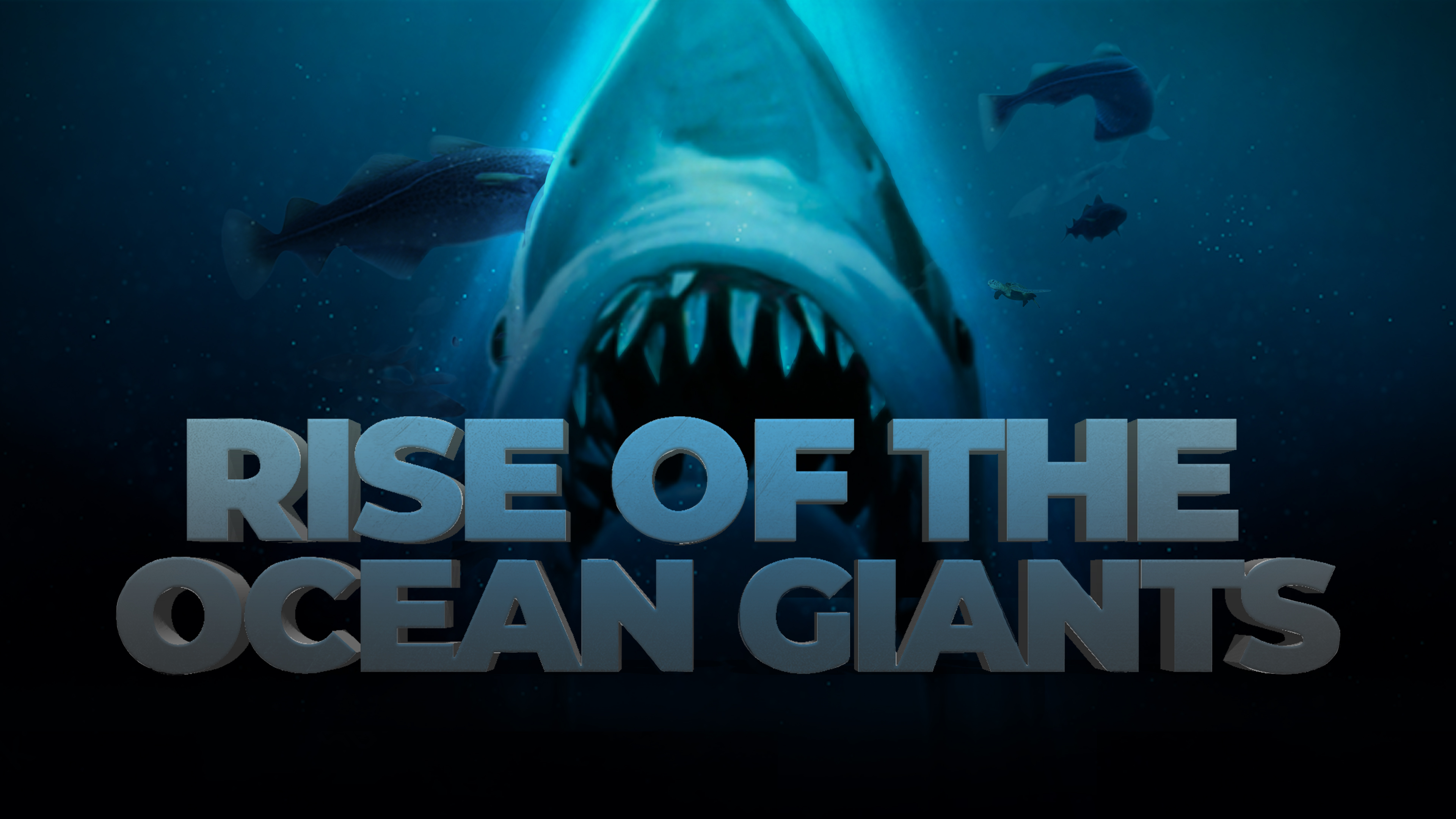[Editor’s Note: This article was originally published in July 2019. It has been updated with current information and new images.]
◊
Shark Week has provided thrills and chills to audiences for 35 years. How did it capture the zeitgeist?
They say success has a hundred fathers and defeat is an orphan, and that wisdom has certainly been borne out in the case of Discovery Channel’s Shark Week.
Shark Week is the longest-running program event on cable TV, and now streaming too. The idea for a week of shark-focused television originated in 1987, as one legend has it, on the back of a cocktail napkin, and made its auspicious debut on the evening of Sunday, July 17, 1988.
.jpg)
A Great White Shark cruises the seas for prey. (Source: Elias Levy, via Flickr)
Now in its 35th season, the ratings juggernaut that is Shark Week has stirred up the waters of summertime TV viewing since it aired its first key program, Caged in Fear. The cumulative viewership in the U.S. alone has risen from several hundred thousand to last year’s 21 million since the event took a cue from the Beatles and expanded to Eight Days a (Shark) Week.
Lost to the Mists of Time (and Alcohol)
Origin stories for this heroic venture are many and (mostly) plausible, as 35-year-old legends go. There may be nearly as many “fathers” of this success as there were people involved in the creation of Shark Week.
Using the gendered noun “fathers” here is not a generalization, unfortunately. All Shark Week origin stories seem to feature only guys. It’s not till present-day accounts that women have risen to positions of prominence.
Depending on which source you believe, there are up to five variations:
- First, there’s this story, certainly the most repeated: Three Discovery Channel execs – John Hendricks, network founder; Clark Bunting, president and general manager; and Steve Cheskin, VP of programming – were drinking in a bar and thinking about ways to boost network viewership. (Remember these names.) One said, “Shark Week?” and wrote it on a cocktail napkin – and we’ve been toasting it ever since.
- Then there’s the account that seems to have become doctrine among Discovery Channel employees: John Hendricks met with the program scheduler to discuss offseason viewing. Hendricks had a eureka moment (“Sharks?”), and Shark Week was born.
- Clark Bunting has another version. In an interview with his college alma mater’s newspaper, he says he was part of the executives’ brainstorming session, site unknown, and came up with a half-formed idea about sharks that he timorously offered up. “I’d like to say I had some amazing insight that this was going to be the longest-running program in cable,” but you sense that he’s just humble-bragging.
- In Steve Cheskin’s memory, he was the star. He and Hendricks were in a hotel suite, and Cheskin was the one who uttered the portentous word “shark.” In this telling, Hendricks gets his props for knowing a great idea when he heard it, and he replied, “That’s it,” with a smile.
- Finally, there’s testimony from basic nobody Tom Siebert, a wet-behind-the-ears, 20-something new hire (in 1987) who was invited to a brainstorming session for non-executives at Discovery. To summarize: Siebert sauntered into the meeting and, only half-involved in the process, thought, What is the worst idea that I can come up with? What is the lowest-common-denominator idea I can proffer as a sarcastic joke? In a flash, it came to him, and he said something like, “Look, we know the bigger the animal, the bigger the ratings, and if it can kill you, that’s the best. So why don't we just air shark shows all summer?” Steve Cheskin, who was in the room, took that suddenly serious suggestion to the network bigwigs, and the rest is (a version of) history.
Clear the Beaches!
What is it about sharks that causes hordes of people to slump in front of their favorite TV-viewing devices for eight nights each summer? Are they naturally scary to us, with their gaping mouths housing rows of dagger-sharp teeth, or have we contracted a kind of cultural galeophobia (fear of sharks) in our collective zeitgeist? And why do audiences continue to grow for this annual event?

The basking shark has an enormous mouth to filter-feed. (Source: Public Domain, released by Chris Gotschalk, via Wikimedia)
Maybe we can’t help ourselves (more on that below), but I think what most likely prompted our senses to rev with a surfeit of adrenaline and dread can be traced to the pen of Peter Benchley and the cinematic genius of a young Steven Spielberg. Benchley gave us the best-seller Jaws, in 1974, and, the next summer, Spielberg’s blockbuster movie version of the book scared the bejeezus out of millions of people who had previously felt perfectly safe going for a swim at their favorite beach.
Benchley was influenced by several real-life incidents. One happened at the New Jersey shore in 1916. A 2015 National Geographic article says that after these attacks, “what were once thought to be frightening-looking yet essentially benign animals became man-eating predators.” And following WWII, stories of the sinking of the USS Indianapolis, and subsequent deadly attacks, became widespread.
Then came the sequels to Jaws, not to mention other shark-themed films and TV shows capitalizing on the trend. (Who can forget the immortal Mako: The Jaws of Death [1976] or the pathbreaking Monster Shark [1984]?) By the time Shark Week was hatched a dozen or so years later, I’d argue that we had been inundated with such fear and foreboding that a nagging phobia blossomed within us. A shocking disquiet arose from the cognitive dissonance between lovely, restful, carefree summer days at the beach, and the extreme, bloody violence of surprise shark attacks. Sharks had infiltrated our deepest fears and nightmares.
And, of course, we’re fascinated by what we fear (as Tom Siebert seems to have known, if you believe his Shark Week origin story). So, all Discovery Channel had to do was exploit this fear, which Shark Week does expertly – provoking great thrills, chills, and summer squeals of delight.
‘Chum Underwear’ and the ‘Meat Suit’
Fear, when it’s somewhat distant and, let’s say, mediated by a TV screen, can act on us the same way chum in the water attracts hungry sharks. We’re never so scared that we can’t handle a little more, and, after a break, we’re hungrier and demand more than we had last time.
Let’s posit that Discovery Channel execs have figured this out, and that’s why every year is a little more spectacular than the year before. There have been guest hosts, including 2023’s host, action film star and the hero of the Aquaman series, Jason Momoa, celebrity appearances, live broadcasts, ever-improving film and video technology, and even a couple of mockumentaries testifying to the top-secret continued existence of the long-extinct shark ancestor, the megalodon.
You may not think that all of these are really “shark-y,” but they are undeniably popular, despite the criticism. Some people insist that Shark Week should be entertaining and at the same time educational, so mockups of sharks and megalodons don’t satisfy this rather lofty imperative. In response, Discovery Channel might point out that two Shark Week specials along these lines, aired in different years, were the two highest-rated Shark Week shows of all time!


The Great White Shark bares its fearsome rows of teeth while breaching. (Source: Olga Ernst, via Wikimedia)
Discovery could also reply – equally accurately but possibly more satisfyingly – that the network has teamed up with OCEANA, a nonprofit organization devoted to ocean health and ecology, to create public service announcements educating audiences on the horrors of “finning” – the outrageous practice of capturing sharks, knifing their fins off, then dumping them back in the ocean to drown. These PSAs inspired a Massachusetts boy to write to the governor of his home state about finning, which led the governor to promote and eventually sign a bill banning the appalling practice in waters under the jurisdiction of the state.
Naturally, such social responsibility won’t stop the project team in charge of Shark Week from considering still bigger and more extreme spectacles for their enthusiastic audiences. One Discovery exec claims that they’ve even considered sending people into ocean waters wearing either “chum underwear” or a “meat suit” to see how the local sea life would respond – but, of course, they wouldn’t actually carry out such a stunt. (Or would they?)
‘Watching Shark Week Makes You Scared of Sharks’
In the real world, sharks are prey for humans far more frequently than the reverse. While there were nine human deaths attributable to sharks worldwide in 2022, more than 100 million sharks were killed during the same period. Sharks do not seek out contact with humans, and our flesh is not part of any shark’s preferred diet. But, after all, some tastes are acquired – so who’s to say sharks won’t learn to enjoy human flesh the way we’ve come to appreciate, say, certain very smelly cheeses?
Click to stream our exclusive MagellanTV playlist, "Rise Of The Ocean Giants"!
We think sharks love to chomp on humans, so there must be some truth to it, right? Well, there’s research on this very topic that was covered in Fortune magazine not long ago. A scientific study was set up that pretested people on their reaction to sharks, then played for them one of two videos: one showing sharks thrashing and fighting for food, and the other showing them peacefully swimming in a tank. After viewing, each group was retested.
What do you think was learned? Surprisingly, both groups moved further toward fear in their post-video questionnaires! Think about that. The vast majority of people have never seen a shark in its native habitat (although some might have had closer encounters than they are aware of), but we’ve all seen sharks on our TV and cinema screens. So, that is our experience of them, for the most part. We feel we know them – and have internalized our fear of them – based on how we see them on screen. It appears that, no matter what they’re doing, our deep, unconscious fear of sharks is triggered even when we see them at rest or play.
Years of Irrational Fears (and Fun!)
This year’s presentation of Shark Week is bound to surprise us with the spectacular adventures of sharks and the people who observe them, along with visits from celebrities and PSAs warning us of the dangers of finning.
In addition to this year’s Shark Week festivities, why not check out MagellanTV’s shark-centric documentaries? We offer tons of content for selachophobes and selachophiles year-round. A good place to start is MagellanTV’s curated Rise of the Ocean Giants playlist, which includes such titles as Sharkman and Diving with Sharks: The Ultimate Guide.
However you get your fix of sharky amusement, you’re bound to find engaging stories to follow, and thrills that will entertain you and possibly make you shiver with both terror and delight. So, grab a handful of shark gummies, settle into your most comfortable chair – and don’t fear the beach!
Ω
Kevin Martin is Senior Writer and Associate Editor for MagellanTV. He writes on various topics, many in the Art and Culture genre. Having had a long career as a journalist and communications specialist, he has recently co-edited the forthcoming book, My Body Is Paper: Uncollected Works of Gil Cuadros. He resides in Glendale, California.
Title Image: A Great White Shark chases prey underwater. (Source: Sharkcrew, via Wikimedia)


